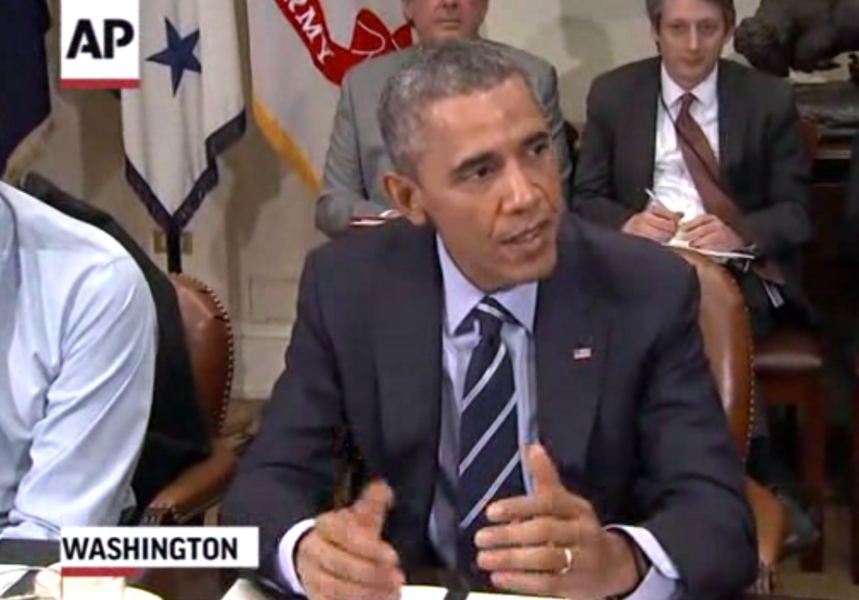Obama: school funding 'worth fighting for' if GOP opposes increase
Loading...
| Washington
Pointing to increased high school graduation rates, President Barack Obama said Monday he's prepared to fight with Republicans for school funding and his education priorities rather than risk going backward.
The president said he hopes that Republican lawmakers focus on educating every child and not shifting money away from needy districts. He's also calling for a focus on low-performing schools, annual assessments and investments in special education and English-language learners.
Obama said if the Republican budget doesn't reflect those priorities, they will have "a major debate."
"We are making too much progress now in terms of graduation rates, improved reading scores, improved math scores, increasing standards, increasing access to the resources the kids need, for us to be going backwards now. And this is something worth fighting for," Obama said at a White House meeting with urban school leaders.
The Education Department said Monday that high school graduation rates for all racial groups have increased, according to data from the 2012-2013 school year. But black, Hispanic, and American Indian students still significantly lag behind their white and Asian/Pacific Islander counterparts.
Previously, the department said the graduation rate had reached a high of 81.4 percent. That means 1 in 5 students overall leaves high school without a diploma.
Among black students, the rate reported was 70.7 percent — up from 69 percent a year earlier.
Hispanic students had a rate of 75.2 percent, which was up from 73 percent a year earlier.
American Indian students had a rate of 69.7 percent — up from 67 percent.
Asian/Pacific Islander students had a rate of 88.7 percent, which was up from 88 percent.
White students had a rate of 86.6 percent, which was up from 86 percent.
The No Child Left Behind law, signed in 2002, has been credited with shining a light on the performance of poor, minority, disabled and non-English speaking students, but also has led to complaints from both Republicans and Democrats that the requirements were unworkable.
Lawmakers are working on a bipartisan effort to update the No Child Left Behind Act. Congress for years has been stymied on the best way to renew the much maligned law, and last month House Republican leaders abruptly canceled a vote on a GOP reform bill after conservative opposition made passage uncertain.
Lawmakers have grappled with such issues as whether federal law should continue to require annual reading and math testing in grades three to eight and again in high school. Much of the conflict focuses on how much of a federal role there should be in identifying and fixing failing schools.







